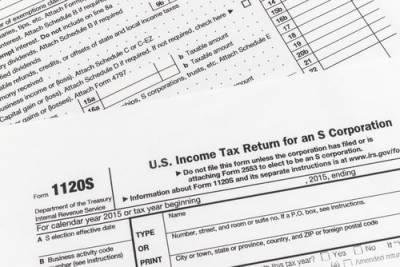Understanding the Differences in Tax Deductions for Hobbies and Businesses
 Business owners often rely on tax deductions to address their expenses. Deductions are available for multiple types of business expenses, and they can significantly lower a person's tax burden. However, businesses are expected to be for-profit ventures, and if a person's income-generating activities regularly result in more losses than gains, they may be classified as hobbies. This can limit the types of deductions that may be available. By understanding the IRS's hobby loss rules, taxpayers can make sure they are able to claim deductions when necessary.
Business owners often rely on tax deductions to address their expenses. Deductions are available for multiple types of business expenses, and they can significantly lower a person's tax burden. However, businesses are expected to be for-profit ventures, and if a person's income-generating activities regularly result in more losses than gains, they may be classified as hobbies. This can limit the types of deductions that may be available. By understanding the IRS's hobby loss rules, taxpayers can make sure they are able to claim deductions when necessary.
When Are Activities Classified as Hobbies Rather Than Businesses?
In general, a taxpayer's activities may be classified as a hobby if they do not earn a profit during 3 of the 5 most recent years. That is, the income earned from an activity must exceed the allowable deductions for that activity in 3 out of 5 years. The applicable time periods are different for activities involving breeding, racing, training, or showing horses. In these cases, a person will only be required to earn a profit in 2 of the last 7 years.
If an activity is considered a hobby, expenses related to the activity generally are not deductible. There are some exceptions, such as deductions for mortgage interest, advertising, insurance premiums, and depreciation of property, which may be classified as miscellaneous itemized deductions taken against a taxpayer's income. However, the Tax Cuts and Jobs Act, which went into effect in 2018, does not allow miscellaneous itemized deductions to be taken. This law will remain in effect through 2025, and starting in 2026, taxpayers may once again be able to deduct certain hobby-related expenses.
Gregory v. Commissioner Addresses Hobby-Related Deductions
A recent ruling by the Eleventh Circuit Court of Appeals illustrates the role that deductions may play for activities classified as hobbies. In this case, a couple conducted a yacht-chartering activity that was considered a hobby because it did not earn a profit. They had attempted to claim deductions for the expenses involved in this activity, and they claimed that these should be "above the line" deductions that would be used to reduce their adjusted gross income (AGI). However, the IRS disagreed, and the deductions were classified as "below the line" deductions that could be applied to the AGI.
The distinction between above-the-line and below-the-line deductions was significant since it meant that the deductions taken were considered to be miscellaneous itemized deductions. Under Section 67 of the Internal Revenue Code, miscellaneous itemized deductions can only be taken if they exceed 2% of a taxpayer's AGI. In this case, the expenses were less than 2% of the couple's income, so no deductions were allowed. Notably, this case involved income and expenses during the years 2014 and 2015. Between 2018 and 2025, no hobby-related expenses may be deducted.
Contact Our San Jose Business Tax Lawyer
The rules regarding tax deductions for businesses and hobbies can be complex. While deductions for hobbies are not currently allowed, they may be available starting in 2026. Prior to that date, taxpayers may begin taking steps to ensure that they will be able to claim deductions, or they may be able to earn profits so that their activities can be classified as businesses rather than hobbies. At John D. Teter Law Offices, our San Jose, CA tax law attorney can provide guidance on how these issues may be addressed. To discuss taxes, deductions, or other related issues in a consultation, contact us at 408-866-1810.
Sources:
https://casetext.com/case/gregory-v-commr-of-internal-revenue-52
https://www.law.cornell.edu/uscode/text/26/183
https://www.investopedia.com/terms/h/hobbyloss.asp









